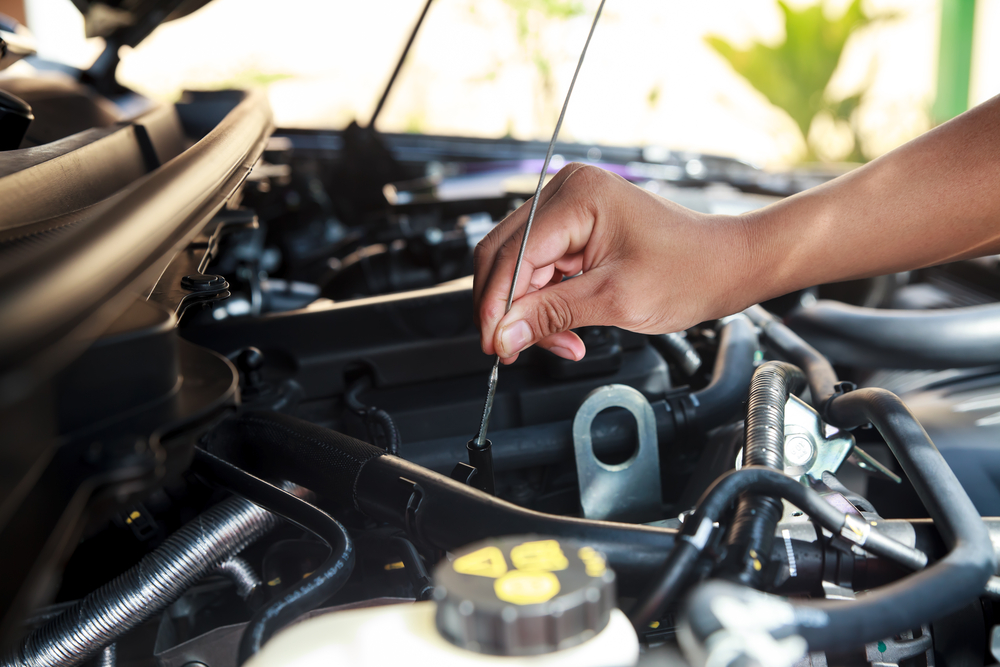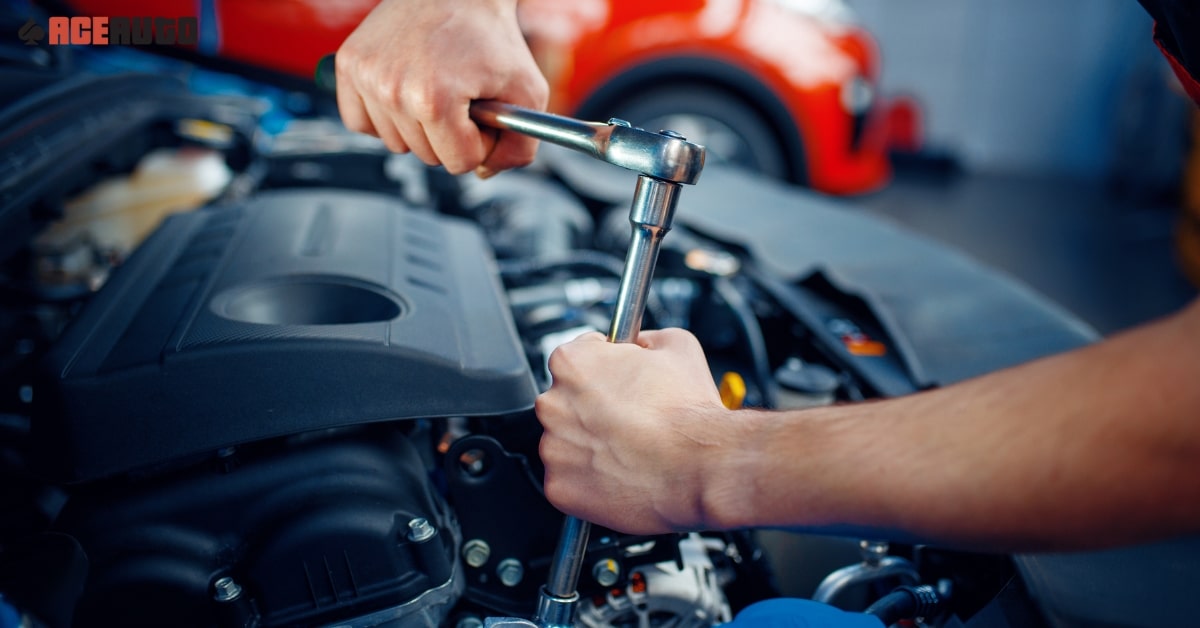All Categories
Featured
The timing belt is a critical element of your engine, in charge of integrating the activity of different engine components, such as the crankshaft and camshaft. This makes sure the engine's shutoffs open and close at the right times throughout the burning cycle. While the timing belt may not be something you think about often, overlooking its maintenance can cause substantial engine damages and costly repair services. Right here's why timing belt substitute is essential for your lorry's longevity and efficiency.
What Is a Timing Belt and How Does It Function? The timing belt is a rubber or composite material belt that attaches the crankshaft to the camshaft in an internal combustion engine. The camshaft regulates the opening and closing of the engine's consumption and exhaust valves, and it must be timed flawlessly with the motion of the pistons in the engine. The timing belt makes sure that these parts remain in sync, enabling the engine to run smoothly.
If the timing belt ends up being or stops working worn, the camshaft and crankshaft will certainly no longer be integrated, which can trigger the engine's valves to strike the pistons. This causes catastrophic engine damages and usually needs pricey fixings or even an engine substitute.
Why Is Timing Belt Replacement Important? Over time, the timing belt can use down due to friction, warm, and basic engine wear. While it might look like a small problem, a defective timing belt can cause significant engine problems. Right here's why prompt substitute is important:
Preventing Engine Damage: As discussed, a busted or slipping timing belt can create the engine's pistons and shutoffs to collide. This results in curved valves, harmed pistons, and in serious situations, a total engine failing. Replacing the timing belt prior to it breaks can stop this costly damage.
Maintaining Engine Performance: A damaged timing belt can disrupt the synchronization of the engine elements, minimizing general engine efficiency. Changing the belt aids keep optimal engine function, ensuring smooth operation, enhanced fuel efficiency, and far better performance.
Preventing Unforeseen Failure: A damaged timing belt can leave you stranded on the side of the road, triggering a major inconvenience. By replacing the timing belt at the recommended periods, you can stay clear of the threat of an unanticipated failure, especially in the middle of a long trip or when you least anticipate it.
![]()
Conserving Cash over time: While timing belt substitute can look like an expense you could desire to delay, it's much more affordable than the price of repairing or changing a damaged engine. If the timing belt breaks, the substitute expense is relatively budget-friendly contrasted to the considerable fixings called for. Positive maintenance can save you hundreds of bucks out of commission and protect your car's value.
When Should You Replace the Timing Belt? The timing belt replacement routine can vary depending upon your car's make and version. As a whole, the majority of manufacturers suggest changing the timing belt every 60,000 to 100,000 miles. It's constantly best to consult your proprietor's guidebook or a relied on mechanic for details referrals for your lorry.
Indicators that your timing belt may want substitute include uncommon engine sounds such as grumbling or ticking, problem starting the engine, or a noticeable decrease in engine efficiency. It's crucial to have the timing belt inspected quickly. if you experience any of these signs.
![]()
Final thought. Changing the timing belt at the suggested intervals is a key part of maintaining your engine's health and wellness and making certain that your car runs efficiently. A damaged timing belt can result in expensive repair work, engine failure, and unanticipated break downs, which can be stayed clear of with proper maintenance. If you see any kind of signs of wear or damage, always adhere to the producer's suggested timing belt replacement routine and get in touch with an expert technician. By keeping this important component of your engine in great problem, you'll protect your auto from expensive repair services and appreciate a lot more miles of carefree driving.
What Is a Timing Belt and How Does It Function? The timing belt is a rubber or composite material belt that attaches the crankshaft to the camshaft in an internal combustion engine. The camshaft regulates the opening and closing of the engine's consumption and exhaust valves, and it must be timed flawlessly with the motion of the pistons in the engine. The timing belt makes sure that these parts remain in sync, enabling the engine to run smoothly.
If the timing belt ends up being or stops working worn, the camshaft and crankshaft will certainly no longer be integrated, which can trigger the engine's valves to strike the pistons. This causes catastrophic engine damages and usually needs pricey fixings or even an engine substitute.
Why Is Timing Belt Replacement Important? Over time, the timing belt can use down due to friction, warm, and basic engine wear. While it might look like a small problem, a defective timing belt can cause significant engine problems. Right here's why prompt substitute is important:
Preventing Engine Damage: As discussed, a busted or slipping timing belt can create the engine's pistons and shutoffs to collide. This results in curved valves, harmed pistons, and in serious situations, a total engine failing. Replacing the timing belt prior to it breaks can stop this costly damage.
Maintaining Engine Performance: A damaged timing belt can disrupt the synchronization of the engine elements, minimizing general engine efficiency. Changing the belt aids keep optimal engine function, ensuring smooth operation, enhanced fuel efficiency, and far better performance.
Preventing Unforeseen Failure: A damaged timing belt can leave you stranded on the side of the road, triggering a major inconvenience. By replacing the timing belt at the recommended periods, you can stay clear of the threat of an unanticipated failure, especially in the middle of a long trip or when you least anticipate it.

Conserving Cash over time: While timing belt substitute can look like an expense you could desire to delay, it's much more affordable than the price of repairing or changing a damaged engine. If the timing belt breaks, the substitute expense is relatively budget-friendly contrasted to the considerable fixings called for. Positive maintenance can save you hundreds of bucks out of commission and protect your car's value.
When Should You Replace the Timing Belt? The timing belt replacement routine can vary depending upon your car's make and version. As a whole, the majority of manufacturers suggest changing the timing belt every 60,000 to 100,000 miles. It's constantly best to consult your proprietor's guidebook or a relied on mechanic for details referrals for your lorry.
Indicators that your timing belt may want substitute include uncommon engine sounds such as grumbling or ticking, problem starting the engine, or a noticeable decrease in engine efficiency. It's crucial to have the timing belt inspected quickly. if you experience any of these signs.

Final thought. Changing the timing belt at the suggested intervals is a key part of maintaining your engine's health and wellness and making certain that your car runs efficiently. A damaged timing belt can result in expensive repair work, engine failure, and unanticipated break downs, which can be stayed clear of with proper maintenance. If you see any kind of signs of wear or damage, always adhere to the producer's suggested timing belt replacement routine and get in touch with an expert technician. By keeping this important component of your engine in great problem, you'll protect your auto from expensive repair services and appreciate a lot more miles of carefree driving.
Latest Posts
Checking Out the Diverse Secure Fencing Options at Washington Fencing
Published Apr 12, 25
1 min read
South Eye Center - Local Vision Expert Near Me: Expert Care for Clearer Sight.
Published Apr 12, 25
2 min read
Metro Detroit's Bath Fitter: A Quick Deal With for Tired Restrooms
Published Apr 12, 25
1 min read
More
Latest Posts
Checking Out the Diverse Secure Fencing Options at Washington Fencing
Published Apr 12, 25
1 min read
South Eye Center - Local Vision Expert Near Me: Expert Care for Clearer Sight.
Published Apr 12, 25
2 min read
Metro Detroit's Bath Fitter: A Quick Deal With for Tired Restrooms
Published Apr 12, 25
1 min read